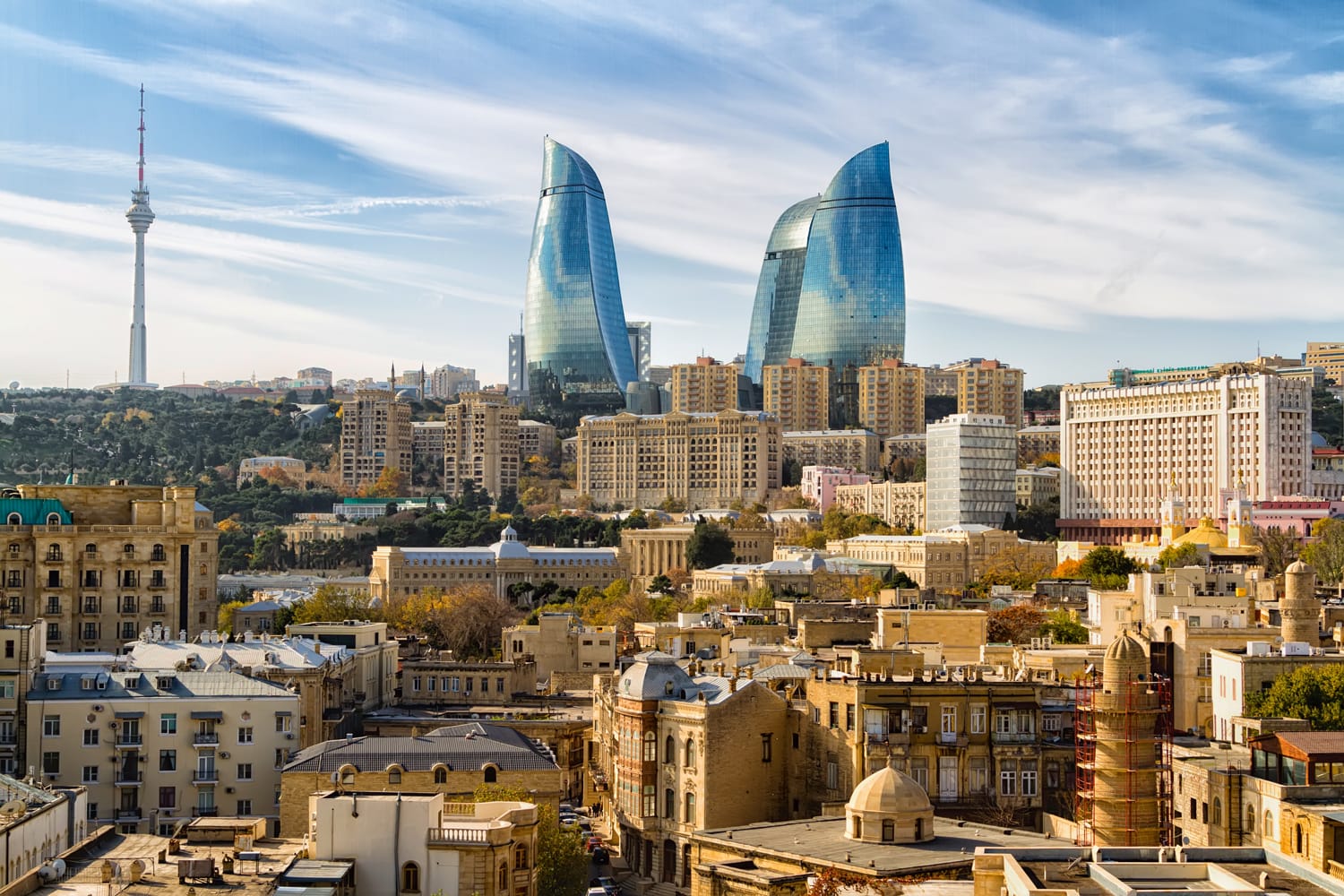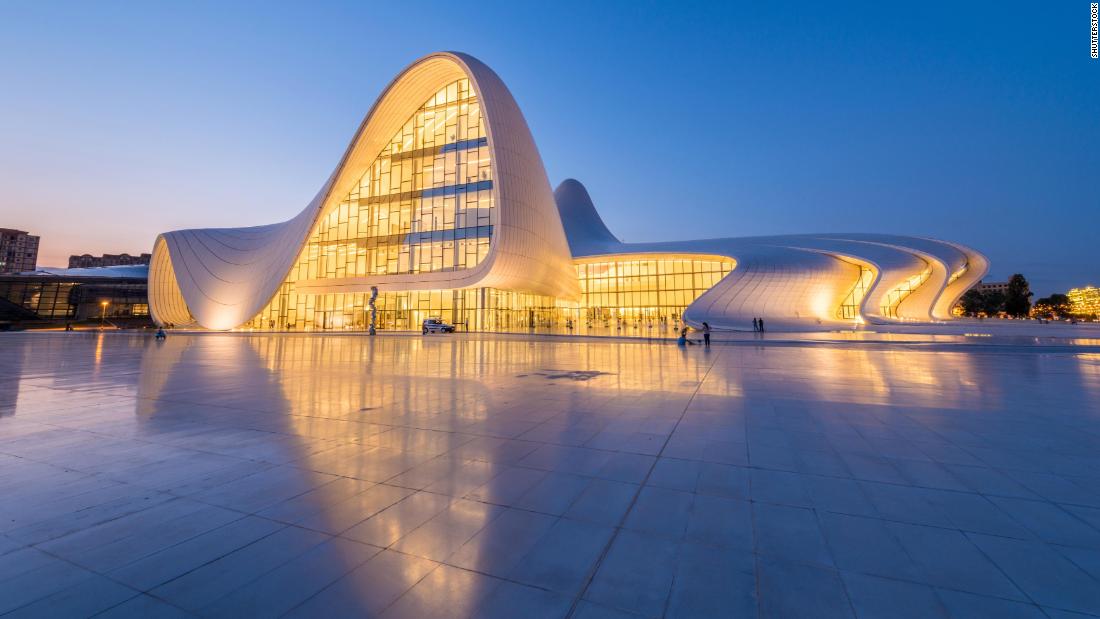Azerbaijan: A Crossroads of Cultures and Landscapes
Related Articles: Azerbaijan: A Crossroads of Cultures and Landscapes
Introduction
With great pleasure, we will explore the intriguing topic related to Azerbaijan: A Crossroads of Cultures and Landscapes. Let’s weave interesting information and offer fresh perspectives to the readers.
Table of Content
Azerbaijan: A Crossroads of Cultures and Landscapes

Azerbaijan, a nation nestled in the Caucasus region, holds a unique position on the world map. Its strategic location, diverse landscapes, and rich cultural heritage make it a captivating destination for exploration and understanding. This article delves into the geographical significance of Azerbaijan, examining its borders, natural features, and its role in the global landscape.
A Land of Diverse Landscapes:
Azerbaijan’s landscape is a tapestry of contrasts, offering a compelling visual journey. To the west, the Greater Caucasus Mountains rise majestically, their snow-capped peaks reaching towards the sky. This region is home to the country’s highest point, Mount Bazarduzu, standing at 4,466 meters. The eastern part of the country is dominated by the Lesser Caucasus Mountains, characterized by rolling hills and valleys. Between these mountain ranges lies the Kura-Araks Lowland, a fertile plain traversed by the Kura River, Azerbaijan’s lifeline.
Beyond its mountainous terrain, Azerbaijan boasts a diverse coastline along the Caspian Sea, the world’s largest inland body of water. The Apsheron Peninsula, jutting out into the Caspian, is a significant oil and gas producing region. The country also possesses a unique natural wonder: the Gobustan National Park, a UNESCO World Heritage Site, renowned for its ancient rock carvings and mud volcanoes.
Strategic Location: A Bridge Between East and West:
Azerbaijan’s location at the crossroads of Europe and Asia has historically made it a crucial trade route and a cultural melting pot. Its proximity to Russia, Turkey, Iran, and Georgia has shaped its cultural identity and political landscape.
Borders and Neighbors:
Azerbaijan shares land borders with four countries:
- Russia: Azerbaijan’s northern border with Russia is marked by the Caucasus Mountains, offering a natural barrier.
- Georgia: The western border with Georgia is relatively short, but it holds significant geopolitical importance.
- Armenia: Azerbaijan shares a disputed border with Armenia, stemming from the Nagorno-Karabakh conflict.
- Iran: The southern border with Iran is long and historically significant, reflecting a shared cultural heritage.
Azerbaijan also has a maritime border with Kazakhstan across the Caspian Sea.
A Tapestry of Cultures:
Azerbaijan’s strategic location has fostered a rich cultural heritage, blending elements from both East and West. Its cultural landscape is a mosaic of ancient traditions, Islamic influences, and modern innovations. The country is renowned for its vibrant music, traditional crafts, and its unique cuisine, which blends Persian, Turkish, and Russian culinary influences.
Economic Significance:
Azerbaijan boasts significant natural resources, particularly oil and gas, which play a crucial role in its economy. The country is a major energy exporter, with pipelines traversing its territory, connecting the Caspian Sea to global markets. Azerbaijan is also actively diversifying its economy, focusing on tourism, agriculture, and technology.
Challenges and Opportunities:
Azerbaijan faces several challenges, including the ongoing Nagorno-Karabakh conflict, environmental concerns, and economic diversification. However, the country also possesses significant opportunities, particularly in its strategic location, abundant natural resources, and its growing regional influence.
FAQs on Azerbaijan:
Q: What is the capital of Azerbaijan?
A: The capital of Azerbaijan is Baku, a modern city with a rich history and a vibrant cultural scene.
Q: What language is spoken in Azerbaijan?
A: The official language of Azerbaijan is Azerbaijani, a Turkic language.
Q: What is the currency of Azerbaijan?
A: The currency of Azerbaijan is the Azerbaijani manat (AZN).
Q: What is the climate like in Azerbaijan?
A: Azerbaijan has a diverse climate, ranging from temperate to subtropical, with a dry, semi-arid climate in the lowlands and a colder, more humid climate in the mountains.
Tips for Visiting Azerbaijan:
- Explore the rich cultural heritage: Visit the ancient city of Sheki, marvel at the architecture of Baku, and immerse yourself in the traditional music and dance.
- Experience the natural beauty: Hike through the Caucasus Mountains, relax on the Caspian Sea coast, and witness the unique mud volcanoes of Gobustan.
- Sample the diverse cuisine: Indulge in the rich flavors of Azerbaijani cuisine, known for its kebabs, pilafs, and flavorful stews.
- Learn a few Azerbaijani phrases: Even a simple greeting in Azerbaijani will go a long way in enhancing your travel experience.
Conclusion:
Azerbaijan, a nation of diverse landscapes, rich cultural heritage, and strategic location, stands as a compelling example of a country bridging East and West. Its history, culture, and economic significance make it a vital player in the global landscape. Understanding the geography, culture, and challenges of Azerbaijan provides valuable insights into the complexities of the Caucasus region and its role in the world.








Closure
Thus, we hope this article has provided valuable insights into Azerbaijan: A Crossroads of Cultures and Landscapes. We thank you for taking the time to read this article. See you in our next article!